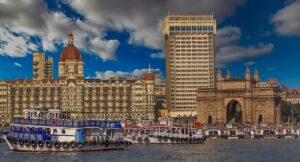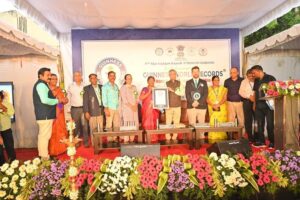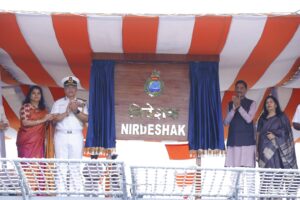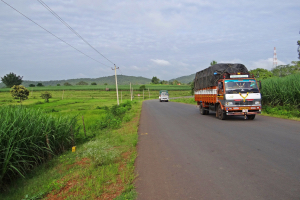
New Delhi: The Ministry of Road Transports and Highways is planning to take over the state highways with high traffic density from the State Governments for a period of 25 years, Union Road Transport and Highways Minister Nitin Gadkari said today while virtually addressing the 12th International Convention of the Association Of National Exchanges Members of India (ANMI) held in Mumbai today.
ANMI is an association comprising around 900 Stock Brokers from across the country who are members of the National Stock Exchange of India Limited, The Bombay Stock Exchange, the Multi Commodity Exchange and other exchanges having a national presence.
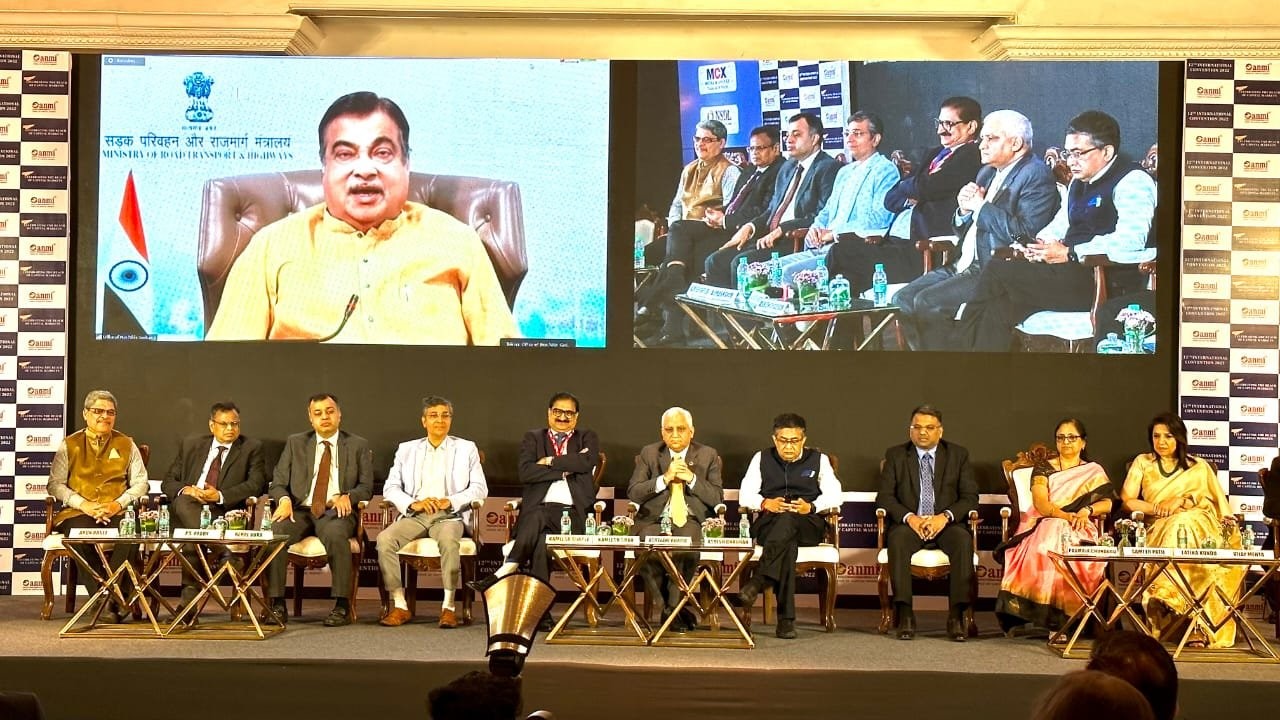
The Minister said these state highways will be converted into 4 or 6-lane highways and then the Centre will collect tolls from them. After a period of 12-13 years, the investments will be fully recovered from those state highways along with interests and land acquisition costs, he said
Gadkari called for cooperation in the investment for infrastructure. “The financial markets need to come up with innovative models to fund India’s Infrastructure growth. We are inviting investments in the PPP model. We can export energy to the world if we channel our investments to waste management, green hydrogen, solar, and several such projects. Innovation, Entrepreneurship, Science, and Technology are the wealth of future India,” he said. The Centre has given the highest priority to the development of infrastructure in the country, he said and assured the investors that investments in the infrastructure sector of the country will be risk-free and yield good returns.
Speaking about infrastructure development, he informed, “We are planning a green express highway between Mumbai and Bangalore”. It will be a 5 hours journey between Mumbai-Bangalore and 3.5 to 4 hours between Pune and Bangalore, he added. The Mumbai-Pune Express Highway will take a turn from near the Ring Road of Pune and start as the Highway towards Bangalore, he further mentioned.
Likewise, 27 green express highways are coming up in the country. By end of this year, there will be highways connecting Delhi – Dehradun in 2 hours, Delhi-Hardwar in 2 hours, Delhi -Jaipur in 2 hours, Delhi – Chandigarh in 2.5 hours, Delhi – Amritsar in 4 hours, Delhi – Srinagar in 8 hours, Delhi – Katra in 6 hours, Delhi – Mumbai in 10 hours, Chennai-Bangalore in 2 hours and Lucknow- Kanpur in half an hour, he stated.
Highway projects connecting Gorakhpur to Siliguri and Varanasi to Kolkata are also on the cards. “Just like the National Water Grid, we want to develop a National Highway Grid,” he said. He also stated that income from tolls has come to Rs 40 thousand crores at present and it will rise to Rs 1 lakh 40 thousand crores by the end of 2024.
The Ministry is also in the process of constructing 75 tunnels at a cost of Rs 2,50,000 crores, stated the Minister. On average, 40 km of roads are constructed per day in the country, he informed. He further stated that presently there exists 65 lakh Km of road length in the country and out of it, 1.45 lakh Km is of National Highways. In the future, before making highways, the plan is to acquire land in cooperation and JVs with private sector investors, he said.
Gadkari further said that there is a huge potential for the development of public transport in the country. There is good economic viability in introducing e-buses, he said. Some of the projects taken up by his ministry include starting electric vehicles, trolleybuses and bus ports in cities. Also, AC Luxury buses may be started for tourists, he added. Under the Parvatmala scheme, ropeways, cable cars and funicular rail are being developed in hilly areas. The restaurants and parking plazas that will come up surrounding these projects will also add to the sources of revenue, said the Minister.
The Road Transport and Highways Ministry is also looking at diversifying the fuel base to include ethanol, methanol, bio-diesel, bio-LNG, BIO-CNG, electric and green hydrogen. Under the National Hydrogen Mission, the Centre wants to make India a green hydrogen hub and export this form of energy to the world.
Gadkari said there is economic viability in making ethanol from sugar cane, bamboo and other agricultural products. “By making bio-fuels, we may increase India’s GDP in agriculture”, he said. Bio-fuels are import-substitute, cost-effective, pollution-free and indigenous, he added.
Stating that the country’s automobile industry’s size is Rs 7.5 lakh crores, Gadkari said that there is a plan to make it a Rs 15 lakh crore industry within 5 years. The automobile industry has maximum employment potential and brings in maximum GST to the Centre and states, he added.
– global bihari bureau


